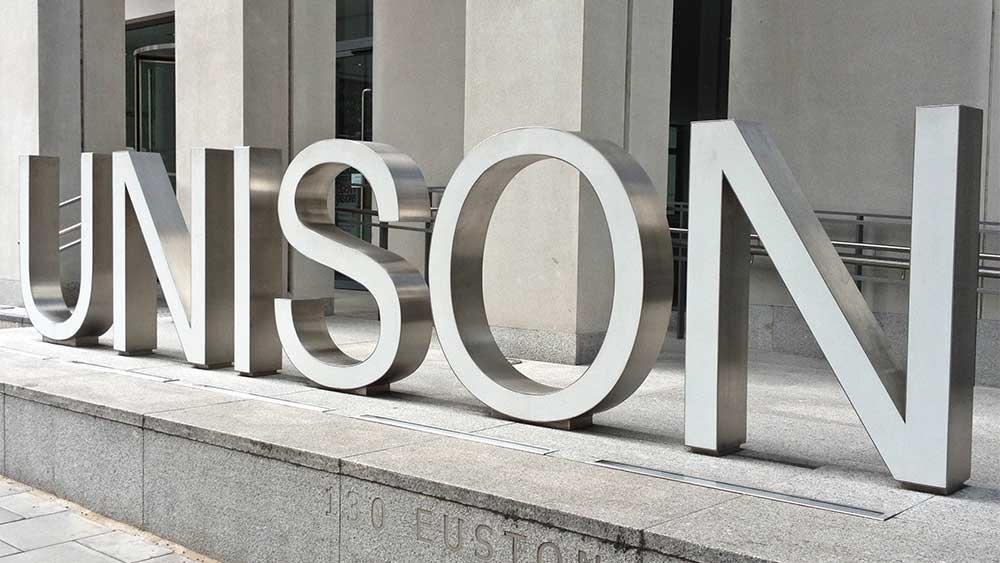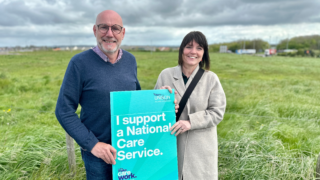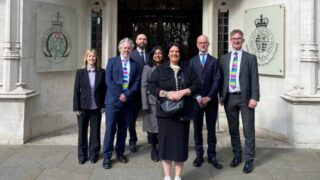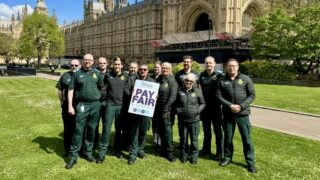UNISON will continue to support the people of Palestine as the conflict in the Middle East remains a “huge issue for UNISON now and in the future”, general secretary Christina McAnea told the union’s national executive council (NEC) in an online meeting today.
Highlighting the strong statements that have been made by the union and have been widely picked up since the recent conflict started, Ms McAnea reiterated that UNISON “stands squarely with trade unionists and workers in both Palestine and Israel”.
Closer to home, the general secretary also stressed that the pandemic and helping members deal with the consequences of it, was still very much “our main focus” and an active priority for the union. “We will make sure people don’t forget the sacrifices our members have made.”
In particular, Ms McAnea reiterated the union’s call for a comprehensive public inquiry into the Westminster government’s reaction to COVID, “sooner rather than later”, and stressed that the “fantastic success of the NHS vaccination programme should not let the government off the hook”.
She said: “There has been a calamitous failure on the part of the Westminster government and that why we’re calling for a public inquiry – not to score points, but because this isn’t the end of the pandemic, there’s going to be surges and, for this country to come through the pandemic, it needs strong, resilient public services.
“That’s why we’re demanding a public inquiry, so we can learn the lesson and go forward stronger as a country.”
The NEC also reflected on the Queen’s Speech earlier in May, with the general secretary noting that the failure of the Westminster government to highlight the problems with social care was a massive mistake and that the union “will continue to keep up the pressure for a proper fair settlement on social care”.
However, the meeting did note that there were differences across the UK on social care, with far more positive messages coming out of the Scottish and in particular Welsh governments, with the latter committing to working with trade unions on the issue.
Ms McAnea also stressed that UNISON would be examining the levelling up agenda in detail to ensure that it included zero hours contracts, firing and rehiring and minimum wage legislation, noting: “I know our view of levelling up will be very different to the Westminster government’s take on it.”
Ongoing union-wide pay campaigns were also discussed. “Fair pay was also missing from the Queen’s Speech, but it continues to be one of our key priorities – we won’t be giving up on it,” she said, before noting that there was a union-wide pay seminar due to take place next week and that the union would continue to work with the TUC and other trade unions on the issue.
The NEC also:
- heard about all the work and the latest plans for June’s special delegate conference;
- appreciated the union’s work marking the first anniversary of the murder of George Floyd, including the lighting up of UNISON Centre in London in purple;
- discussed the anti-racism training of employers and the broadening out of the union’s own anti-racism training;
- reflected on “a mixed bag” of election results at the start of the month for Labour, highlighting many Labour successes in mayoral elections across England and in the Welsh elections and thanking all members and activists who had campaigned for Labour;
- congratulated and thanked the presidential team of Josie Bird, Sian Stockham and James Anthony for all their hard work over their extended terms of office due to COVID.




